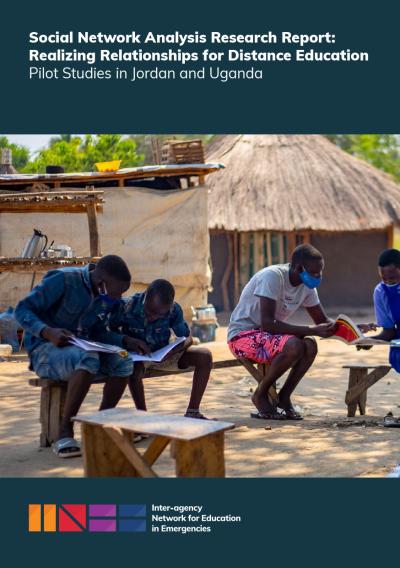Social Network Analysis Research Report: Realizing Relationships for Distance Education
This report explores how social network analysis (SNA) could shed light on educational shifts, such as the switch to distance learning during the COVID-19 pandemic, and presents findings from pilot SNA studies of distance education for refugees in Jordan and Uganda.
SNA measures how actors are connected within a network. It illuminates how the structure of or an actor’s positionality within a network affects social outcomes (Folke, 2006; Light & Moody, 2020), in this case the provision of distance education for refugees. Traditionally, the provision of education has been viewed as the output of a static system governed by hierarchical relationships. However, it is increasingly understood as a complex and dynamic ecosystem in which influence, resources, and ideas enter at different points and travel along diverse pathways.
The pilot studies conducted in Jordan and Uganda explored what facilitated and what inhibited distance education for refugees in the midst of the COVID-19 pandemic, with particular attention given to the network of relationships among distance education policy, content development and curation, teacher preparation, and delivery actors. Data was collected from individuals who worked for organizations that delivered, or supported the delivery of, distance education for refugees in Uganda and Jordan in 2021.




